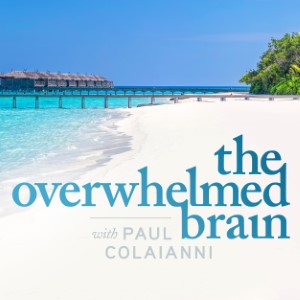The emotional healing journey consists of many ups and downs. A listener asks me how I managed to get through my journey and what I can share with others on what to expect.
Whether you’re starting your healing journey from scratch or still on a hot path of learning, healing, and growing, there’s always more to learn.
I talk about what it takes to honor your boundaries in a healthy way (instead of waiting until you blow up) and recognize patterns in yourself that may point back to emotional wounds from the past.
What are your results over and over again? Are you succeeding in life or failing miserably?
I think it’s important to look at where you were, where you’re going, and what you keep ending up with to determine your level of emotional health. When you start succeeding, however you define it, it is most likely because you’ve processed and released some old negativity that’s been around a long time.
I also talk about depression and how it is devoid of emotions. When I was depressed, it was like having no feelings at all. Though, I did feel something because I didn’t like how I felt! It was like I was a sponge of negative emotions but I couldn’t squeeze them out.
Healing can begin the day you start observing your own behavior and asking yourself why you do the things you do. It soon feels like you are two different people:
The one experiencing the emotion and the other observing your behavior.
This is when true healing can begin. Awareness is a major step forward because you are no longer on autopilot. You will still have challenges, but you’ll also have your observation of how you handle those challenges. And it’s not always comfortable.
In segment two, I talk about the need to express something to someone but being afraid it will ruin the relationship or ruin their life somehow. Sometimes you walk around holding on to unfinished business and feel like it’s important to share how someone else made you feel about something they did a long time ago (or even yesterday).
Forgiving and moving on is a step you can take, or perhaps healing within you (self-forgiveness) which doesn’t even involve the other person. Either way, you can carry it with you or you choose to process and hopefully release whatever it is.
If you are carrying the burden of upset from something someone did to you, it’s time to address it in some way. You may have to express to them what you’re feeling. Or, maybe it’s better to keep to yourself. I kept a family secret for many years and chose to bear the burden of it instead of spilling the beans and telling the people I really wanted to tell.
I was sworn to secrecy so I had to come to a place of acceptance of that burden in myself. It wasn’t easy, but it is possible – and sometimes the best choice considering what might happen if you chose to share what you were told not to.
During the conclusion of the show, I read a paragraph from The Overwhelmed Brain book and talk about focusing on yourself for healing and not others, unless they want you to. When I was married, I used to focus on what my wife needed to do to change so that I would be happier. Turns out, after seven years of focusing on her, I did little healing in myself. Not only that, I used to be terribly judgmental. She didn’t ask for me to “fix” her, but I tried. And the marriage ended.
Focusing on others without their consent or desire, even if your intentions are good, can sometimes be what causes them to want to be away from you. Good intentions aren’t always motivated by noble thoughts. Sometimes good intentions derive from selfish needs. Healing begins within you, even when it appears that others need to change.
Trying to help someone change who didn’t ask for it is not honoring their happiness or supporting their path. Keep your focus on yourself. And as you grow through your challenges, you might just be able to grow with those you love instead of push them away from you.


Wise and thought-provoking, this piece gently reminds us that choosing when (and how) to express emotions is a key part of healing.